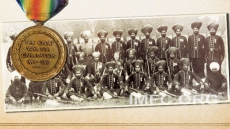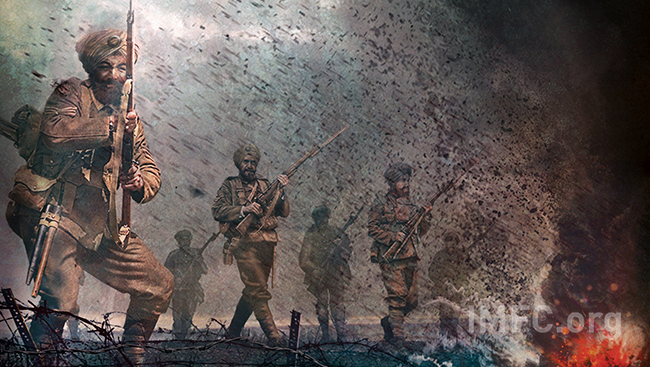April 13 marks the 100th Anniversary of the Jallianwala Bagh Massacre that took place in 1919.
April 13 this year marks the centenary of an incredibly pivotal moment in both Sikh and Indian history. The Jallianwala Bagh Massacre was a deadly attack that took place in the Jallianwala Bagh in Amritsar on April 13, 1919. In this enclosed garden, nearly 20, 000 people were gathered to celebrate Vaisakhi when troops of the British Indian Army, under the command of Colonel Reginald Dyer, fired rifles into a crowd. Upon Dyer’s orders, approximately 1,650 rounds were fired on the crowd for nearly ten minutes, and at least 379 deaths were reported, along with another 1,200 innocent people injured. However, these numbers have been thought to be much higher in reality.

After the brutal attack, Reginald Dyer was disciplined by being removed from his appointment and was prohibited from further employment in India. However, this did not bring justice or any closure to the torment Sikhs and Indians continued to face after the attack took place. Dr. Pargat Singh Bhurji, a well-known pediatrician and public figure, addresses the important role a 19-year-old boy by the name of Udham Singh played in first retaliating against those behind the massacre. During the massacre, Udham Singh was serving water to the crowd and witnessed the pain and suffering of others throughout the event, while also being wounded himself.

Dr. Bhurji recalls, “On 13th March 1940, at Caxton Hall in London, Udham Singh shot and killed Michael O'Dwyer, the Lieutenant-Governor of Punjab at the time of the massacre, who had approved Dyer’s action and was believed to have been the main planner.” In court, Udham Singh was sentenced to death by hanging, but explained that his death was not in vain.

In his own words, Udham Singh said “I did it because he deserved it, and he was the real culprit. He wanted to crush the spirits of my people. For a full 21 years, I have been trying to wreak vengeance and I am happy that I have done the job. I am not scared of death, as I am dying for my country. What greater honour could be bestowed upon me than death for the sake of my motherland?” Dr. Bhurji salutes “Shaheed-i-Azam Udham Singh with reverence for his bravery and for laying down his life to free India once and for all.” Dr, Bhurji always visits Jallianwala Bagh whenever he is at Harmandir Sahib in Amritsar to pay his respects to the shaheeds of this massacre.
The incident is regarded as one of the deadliest attacks in the history of the world and proved to be a turning point in India’s freedom struggle, whose repercussions were felt across generations. “The senseless murder of so many peaceful and innocent people set the stage for India's eventual freedom on August 15, 1947,” states Balwant Sanghera, president of the Punjabi Language Education Association.

Indian author Saurav Dutt, who is publishing a commemorative book to mark the 100th anniversary of this horrific event says, “For Sikhs, this was also a moment to recognize that as a collective force, it was the moment to act, to fight for a country that deserved to be their own, with the human rights that went along with that recognition. Jallianwala Bagh was the catalyst, a horror that was turned into a revolutionary zeal that transformed a country, and ignited a spirit of determination that had been absent. It was a time of incredible suffering and bloodshed but also the reason why India refused to be shackled to its imperial chains for even a moment longer.”
On the 100th anniversary of the Jallianwala Bagh Massacre, founder of Indus Media Foundation Canada and community historian, Steven Purewal, says, “Our soldiers’ history of service has been thrown under the bus by British and Canadian governments. We must realize that Jallianwala Bagh was a travesty that can only be fully understood by how much India, Punjabis and Sikhs have done to recognize the full magnitude of events.”
Today, the Jallianwala Bagh is considered a popular destination and pilgrimage site to pay tribute to the victims of the massacre. Sanghera can attest to that: “Every time my family and I visit the Golden Temple, we make it a point to visit and pay our respects at the Jallianwala Bagh as well. The foundation charged with its upkeep must be commended for keeping this sacred site in such good shape. This special place means a lot to Sikhs in particular, and is a great symbol of their determination, sacrifice, forgiveness and resilience.”




